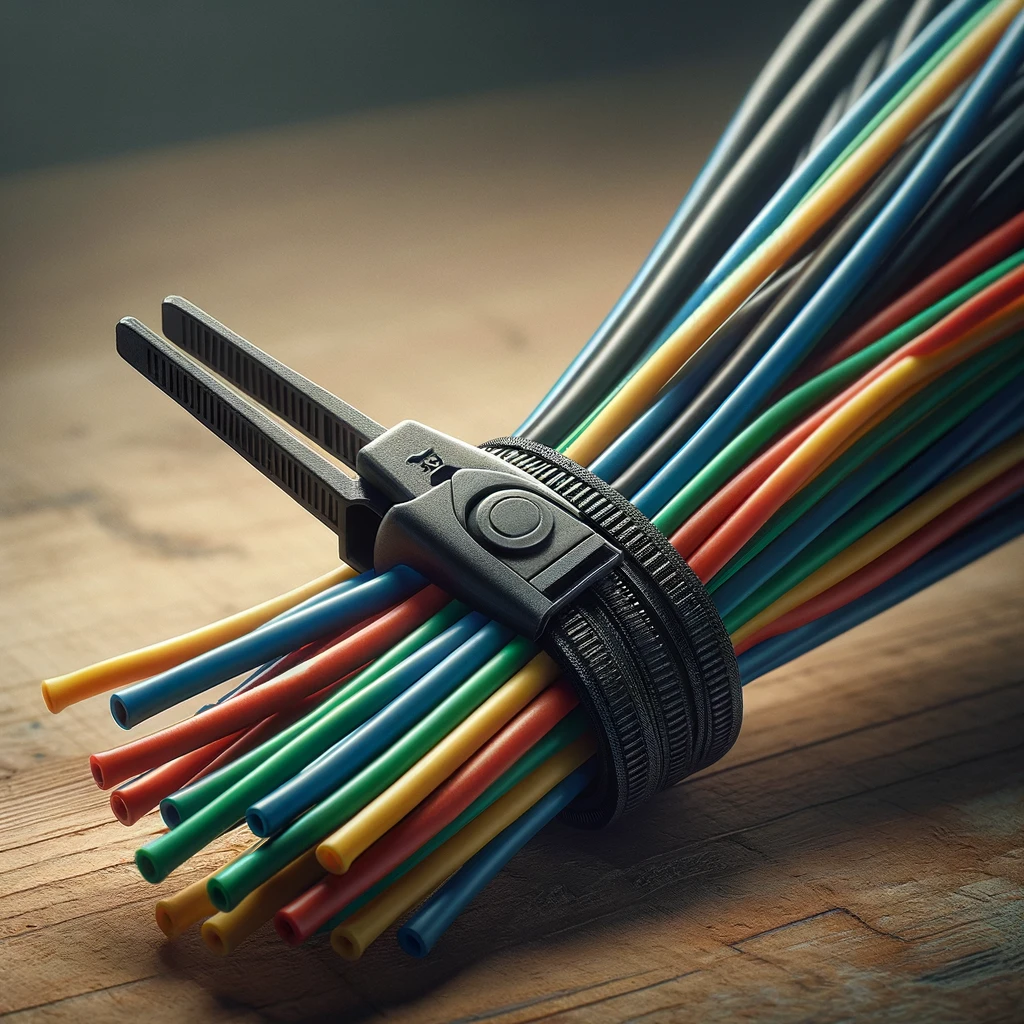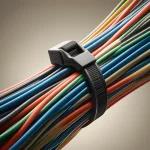If you've ever found yourself in a tangle of electrical wires and can you zip tie electrical wires together, you're not alone. Many DIY enthusiasts and professionals alike have faced this challenge. Thankfully, there's a simple and effective solution: zip ties. In this guide, we'll explore the versatility of zip ties, specifically focusing on their application for bundling electrical wires together.
Understanding the Versatility of Zip Ties
Zip ties, also known as cable ties, are a staple in any toolbox for their versatility and ease of use. They consist of a flexible nylon strip with a locking mechanism, allowing for quick and secure fastening. While commonly used for organizing cables and wires, zip ties have a wide range of applications, from securing luggage during travel to organizing garden hoses in the backyard.
When it comes to electrical work, zip ties are indispensable. They provide a simple and efficient way to bundle wires together, reducing clutter and minimizing the risk of accidents. Whether you're working on a home improvement project or performing professional installations, zip ties offer a reliable solution for managing wires and cables safely and effectively.
Benefits of Using Zip Ties for Electrical Wires
- Secure Fastening: Zip ties provide a secure and tight grip, ensuring that electrical wires remain neatly bundled together. This helps prevent tangling and minimizes the risk of accidental disconnection.
- Flexibility: With various sizes and strengths available, zip ties offer flexibility in accommodating different wire gauges and quantities. Whether you're bundling a few small wires or organizing a complex network of cables, there's a zip tie suitable for the task.
- Ease of Installation: One of the greatest advantages of zip ties is their simplicity. With just a single pull, you can tighten the tie around the wires, and the locking mechanism keeps it securely in place. This makes installation quick and effortless, saving you time and effort on the job.
- Cost-Effective: Zip ties are an affordable solution for cable management, making them accessible to DIY enthusiasts and professionals alike. With their low cost and high effectiveness, they offer excellent value for money.
When You Should Avoid Zip Tying Electrical Wires Together

While zip ties are incredibly useful for organizing electrical wires in many scenarios, there are situations where they may not be the best option. Understanding when to avoid zip tying wires together is crucial to ensuring the safety and functionality of your electrical systems.
1. Temperature Extremes
In environments with extreme temperatures, such as outdoor installations or near heat sources, zip ties may become brittle and prone to breaking. High temperatures can cause the nylon material to degrade, compromising the integrity of the tie and potentially leading to safety hazards. In these cases, it's best to use heat-resistant alternatives specifically designed for such conditions.
2. Frequent Maintenance
In settings where frequent maintenance or adjustments to the wiring are necessary, zip ties may pose challenges. Once tightened, zip ties cannot be easily undone without cutting them off, which can be time-consuming and wasteful. For applications requiring regular access to the wires, consider using reusable cable management solutions or Velcro straps that allow for easy removal and reinstallation.
3. Weight-bearing Applications
While zip ties are capable of securely holding lightweight wires together, they may not be suitable for supporting heavier loads. Attempting to use zip ties to suspend or bear the weight of cables, fixtures, or equipment can lead to overstretching or breakage, posing a risk of damage or injury. For weight-bearing applications, it's advisable to use dedicated mounting hardware or cable management systems designed to handle heavier loads safely.
4. Risk of Over-Tightening
Over-tightening zip ties can exert excessive pressure on the wires, potentially damaging their insulation or causing deformation. This can lead to short circuits, electrical faults, or even fire hazards. Care should be taken to avoid applying excessive force when tightening zip ties, especially around delicate or sensitive wiring. Using adjustable cable management solutions or employing professional installation techniques can help prevent over-tightening and ensure the integrity of the electrical system.
Best Types of Ties for Bundling Electrical Wires
1. Nylon Zip Ties
Nylon zip ties are the most common choice for bundling electrical wires due to their durability and affordability. They provide secure fastening and come in various sizes and strengths to accommodate different wire gauges and quantities.
2. Velcro Cable Ties
Velcro cable ties offer the advantage of reusability, making them ideal for situations requiring frequent adjustments or maintenance of the wiring. They provide a secure grip while allowing for easy removal and reinstallation without the need for cutting.
3. Stainless Steel Cable Ties
Stainless steel cable ties are suitable for applications where durability and resistance to corrosion are paramount, such as outdoor installations or harsh environments. They offer exceptional strength and reliability, ensuring long-lasting performance even in challenging conditions.
4. Twist Ties
Twist ties are a versatile and convenient option for bundling electrical wires, especially in temporary or lightweight applications. They consist of a flexible metal wire encased in a protective coating, allowing for easy twisting and securing of the wires without the need for additional tools.
5. Releasable Cable Ties
Releasable cable ties provide the convenience of a traditional zip tie with the added feature of being reusable. They feature a tab or mechanism that allows for easy release and reinstallation, making them ideal for situations where adjustments or modifications to the wiring are necessary.
Wrapping Up
Now you know whether you can zip tie electrical wires together. They are a versatile and practical solution for bundling electrical wires. Their secure fastening, flexibility, ease of installation, and cost-effectiveness make them an essential tool for any electrical project.
Whether you're a seasoned professional or a DIY enthusiast, incorporating zip ties into your cable management arsenal will help you achieve a tidy and organized workspace while ensuring safety and efficiency.

